Review for Ah My Buddha - Nirvana Collection
Introduction
Ever been duped into buying something by dubious advertising? You’d be forgiven for picking up Ah My Buddha under false pretences. After all, watch enough anime, and you’ll quickly have encountered the Ah My Goddess! franchise, even if only in passing. It’s a major production line at this point, with a continuing manga, spinning off the original OVA series, a movie, two television series, the Mini Goddess adventures, all of which we got in the West, and the occasional OVA release in Japan even now. Media Blasters released the first television series in the US, and the idea must have been to grab a few unsuspecting Ah My Goddess! fans with Ah My Buddha. Other than the name, the two shows have nothing in common. Aa Megamisama! might translate as Ah My Goddess, but Amaenaide yo!! actually translates as Don’t Act Spoiled. Media Blasters renamed it in a perverse fit of marketing.
Fortunately I read up about the series before I bought it, and knew full well what I was letting myself in for. The only similarity the two series have is in the setting, a Buddhist temple. But Ah My Buddha is actually one of those saucy harem comedies, with a premise so debauched that it would make Urd blush. Just be warned that if you make the choice to purchase this series, while monks, nuns, temples, and religion play a part in its story, there’s very little wholesome and divine about this show.
Ikkou Satonaka is a Buddhist monk in training. His parents shipped him off to his priestess grandmother at the Saienji temple to find some vocation. Naturally he isn’t all that great at ministering to the faithful, and chanting the sutras. It isn’t made any easier as he has to share a roof with six trainee nuns, Chitose, Haruka, Hinata, Sumi, Yuko and Sakura. As a trainee monk, he’s called upon to perform exorcisms, and deal with demons and wayward spirits. You’d think that such a trivial monk would be ill-suited to such a high calling, but Ikkou has a secret power that lets him deal with such apparitions, a power that is awakened when he reaches sexual climax. Fortunately for him, working with six young trainee nuns offers him the fan service that awakens his powers. Fortunately for the nuns’ spiritual purity, Ikkou has a problem being all... premature.
Media Blasters’ Ah My Buddha Nirvana Collection collects six discs together in one boxset, comprising both series of the show Amaenaide yo!!, and Amaenaide yo!! Katsu!! Don’t Act Spoiled!! Victory!!, as well as a couple of OVA episodes.
Disc 1: The Aroused One
1. Don’t make me come!
2. Don’t play around!
3. Don’t peek!
4. Don’t be scared!
Disc 2: The Two Uncovered Paths
5. Don’t cosplay!
6. Don’t Transform!
7. Don’t Search!
8. Don’t Confess!
Disc 3: The Three Exposed Jewels
9. Don’t Sing!
10. Don’t Get Me Wet!
11. Don’t Tease Me!
12. Don’t Awaken!
13. Don’t Rest!
Disc 4: The Four Naked Truths
14. Don’t Tempt Me!
15. Don’t Fan Me!
16. Don’t Come Back To Me!
17. Don’t Haniwa Me!
Disc 5: The Five Bare Aggregates
18. Don’t Fall Down!
19. Don’t Lose Yourself!
20. Don’t Be in Heat!
21. Don’t Egg Me!
Disc 6: The Six Realms Below
22. Don’t Cry!
23. Don’t Tamper!
24. Don’t Be Spoiled!
25. Don’t End!
26. Don’t Be Fooled!
Picture
Ah My Buddha gets a 1.78:1 anamorphic transfer in the NTSC format. The image is clear, and presented adequately enough, with strong colours and a minimum of visible interlacing. It shouldn’t be too problematic a transfer, as Ah My Buddha is a rather simplistic animation, with familiar and simple character designs, bold colours, and world designs which aren’t too complex. In some ways it’s pretty static and unimaginative even for a show of its vintage. The whole point is getting the fan service across, and in that respect it accomplishes all that it sets out to.
Sound
You have the choice between DD 2.0 Stereo English and Japanese, with optional subtitles and a signs only track. This is a fan service, harem comedy show, so expect the booby bounce sound effect to be overused. I went with the Japanese audio, and the actor performances were pretty predictable for the genre. This isn’t an excessively sound designed show, and does just enough to get its story across. The dialogue is clear throughout, but I did find on four of the discs, the Japanese audio was a little dull in comparison to the English stereo, which was crisper and more responsive in the higher frequencies. Disc 1 and 3 had equivalent quality Japanese audio. The subtitles are timed well, and free of any significant error. I gave the English audio a try, and found it to be a typically average US anime comedy dub, and indeed a little lacklustre in that some of the characters, particularly Yuko seemed miscast. Also name pronunciations were all over the place.
Extras
The Animeworks label is Media Blasters last attempt to clear old stock before the licences lapse. Hence the bargain basement price, and hence the bargain basement packaging. We have one Amaray sized case with all six discs stacked on one spindle. The first thing to do is to get a friendlier case to put the discs in for easy access.
All six discs get similar presentations, static menus against the show’s themes from which you can play the episodes, or select from a handful of extra features. Each disc except disc 5 will also conclude with a translated white text on black, English language credit scroll for the episodes on that particular disc.
Across the discs you’ll find the various textless endings and openings for the show. Note that the first series has subtly different openings for the episodes, and you get five of them presented on these discs in textless form.
You also get trailers for various other Media Blasters properties, including Genshiken, Kujibiki Unbalance, Ah My Goddess, Kirameki Project, Golden Boy, Eiken, Mouse, and Step Up Love Story. Note that the final disc also has a link to a trailer for Midori Days, but it just plays the trailer for Step Up Love Story again.
On discs 3 and 6, you’ll also find links to the OVA episodes in the extras menu, but as they play back on the disc as normal as part of the programme, I don’t really count them as extras.
Conclusion
I find myself wondering if I would enjoy Love Hina as much if I watched it for the first time today, as I did when I actually did see it, with just a few anime shows worth of experience under my belt. Love Hina is in many ways the archetypal harem comedy show, and Ah My Buddha is little more than a clone. Once more we have a hapless teen male, who finds himself under the same roof as several attractive girls, and through no fault of his own, winds up in compromising situations that get him battered in retribution. Only instead of a female boarding house/hot springs, he’s resident in a Buddhist temple, a trainee monk instead of an eternal student, and the girls are all trainee nuns. Add a dash of spirituality and a whole lot of exorcism, and you have the selling points that would make Ah My Buddha unique, but otherwise it’s as cookie cutter as you could imagine. It’s also not very good.
Then I remember that Ah My Buddha isn’t Love Hina. The harem comedy as a genre in anime hasn’t really aged that well, and fans have become accustomed to comedies with more depth, nuance and variety. But Love Hina is more than just its surface aspects of sauciness, and battered and neutered teen males. For one thing it has a story that develops over its run, it also develops its characters, and it is possible to invest in its central pairing of over-aggressive Naru, and eternal punch-bag Keitaro. Most importantly, Love Hina has heart, and it can, when it isn’t being ribald or daft, present moments that invoke not a little empathy in the viewer. Ah My Buddha hasn’t got much heart, and it certainly doesn’t have much of story. Neither is there much incentive to care about any of the characters. It’s just sauciness for its own sake, a comedy with only one joke, and whole lot of fan service.
The premise is that this temple specialises in exorcisms. The trainee nuns and monk get sent out to deal with wayward spirits. This they do through chanting sutras, charms, and the various methods that Buddhism indicates. These being trainees, the attempts are usually unsuccessful, especially as Ikkou has a whole lot of incompetence stringing his bow. That’s except when he becomes aroused, as that unleashes his hidden powers, and a blinding white light appears that exorcises all malicious spirits in the area. The usual train of events is that they go to exorcise a spirit and fail, at which point the spirit will attack one of the girls, stripping her bare, and the sight of that will unleash Ikkou’s powers exorcising the spirit. Afterwards, unable to control his lust the girls will have to beat the pervert back into some sense of normality. Sometimes, at times of need, the girls will deliberately bare some flesh to awaken Ikkou’s power, which makes the subsequent smack-down all the more malicious and Machiavellian.
And when they aren’t busy exorcising, they tend to the usual harem antics that occur when six girls and one boy share the same roof, or attend the same high school. Ikkou is the typical hapless teen male, although in this case more of a pervert, and with less in the way of redeeming features. Chitose is Naru to his Keitaro, the one female in the harem most likely to wind up with him, able to see his finer qualities, such as they are, and the first to give him a battering should he transgress. The other girls in the harem tend to various character stereotypes. Haruka is the big-breasted, gentle, and slightly slutty one (later on her sister shows up, even more curvaceous and more blatantly slutty). Sakura is the quick to anger, lover of food. Hinata is her younger sister, and she’s the quiet, slightly weird one that keeps a little demon as a pet. Sumi is the warm-hearted and shy one, while Yuko is the tomboy of the group, and who perversely gets annoyed when her flat-chested nature fails to turn Ikkou on. Lady Jyotoku is the head nun, adult figure and Yoda to the group, and also Ikkou’s grandmother to whom it falls to train these youngsters.
Things get complex when it transpires that there is rivalry between the Buddhist sects and different approaches in how to handle Ikkou’s power. Lady Jyotoku is of the opinion that he needs to train his own abilities more, and rely less on this power that he has no control over. As the series progresses, the smack-downs become more pre-emptive to prevent his awakening, rather than beatings after the fact. But there are others who believe that Ikkou’s power should be awakened, and work behind the scenes to make his awakenings more frequent. For the second series, the second half of this collection, the attempts become more overt.
There’s one iteration of Love Hina that I do not like. That would be Love Hina Again, a three episode OVA that was made after the series and the two season specials. In that OVA, there came a new character, Kanako who just happened to be Keitaro’s sister, and who turned up determined to do whatever she could to break him and Naru apart. She was the most annoying character ever to appear in that show, and a big reason why some Love Hina fans choose to act as if Love Hina Again doesn’t exist. Ah My Buddha has its Kanako, but unfortunately for this collection, it’s the entirety of the second season that becomes its Love Hina Again. In the second season a character named Kazuki shows up, a nun from a rival Buddhist sect, whose sole purpose is to make sure Ikkou’s powers are awakened, and she’ll do whatever slutty thing she can to make that happen. She’s two-faced as a character, and every time she appears on screen, I get a sinking feeling at the incipient annoyance that is about to occur. She’s that which refuses to be flushed, and whatever tolerance, and indeed enjoyment the first season engendered in me, is totally squandered by the second.
Ah My Buddha is entertaining enough, and the first season in particular does raise a few smirks, even elicits a few chuckles. It is utterly clichéd and derivative, but it ploughs a well-worn furrow, and it does what it has to efficiently and conforming to all the established character tropes and plot clichés. In some ways it’s comforting in its familiarity, and you can say with all the fan-service, especially in the nipples-unleashed, straight to DVD, non-broadcast OVA episodes, that it’s never dull. But it is a telling thing when the funniest thing about the show is how Media Blasters handled the subtitling. In season 1, they are blatant about the show’s premise, and when Ikkou’s powers are unleashed, the girls’ catchphrase is translated as “He Came!” By the time Season 2 rolls around, which is even more blatant in its fan service and sauciness, suddenly someone in the subtitling department gets all shy and red-faced, and now it’s translated as “He Awakened!” Sorry, the cat’s out of the bag at this point.
If Ah My Buddha somehow manages to land on your DVD shelf (which is getting unlikely given that Media Blasters’ license has apparently lapsed), it’s watchable enough, but if you are looking for a harem comedy, there are several better options out there.
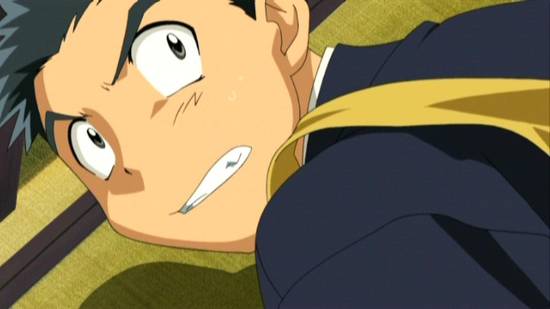
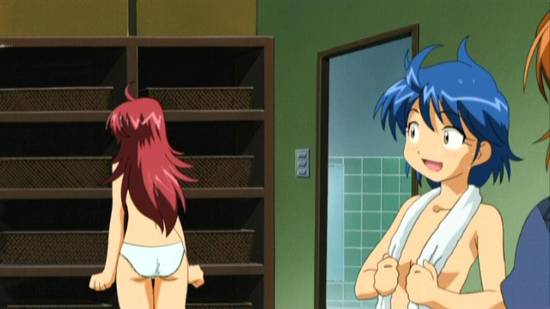
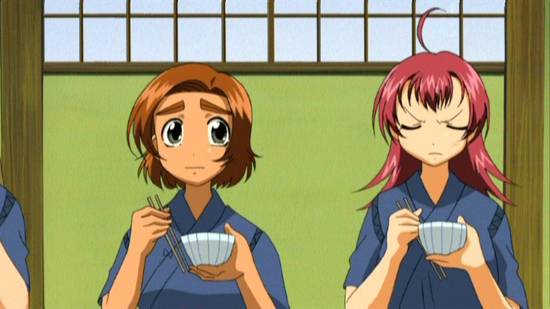
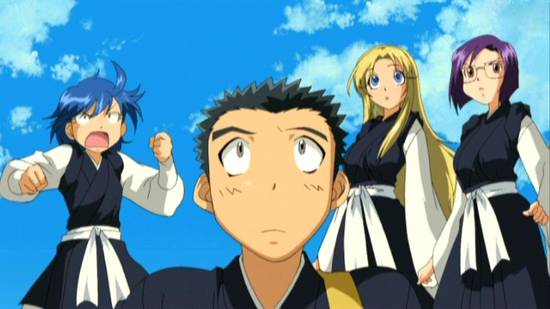
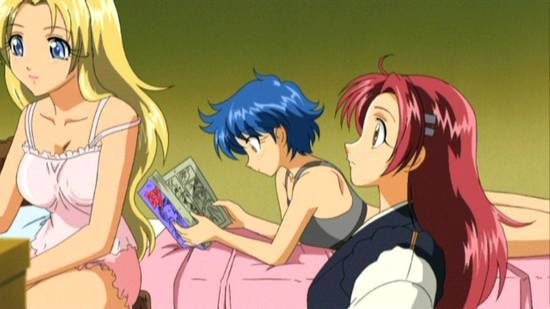
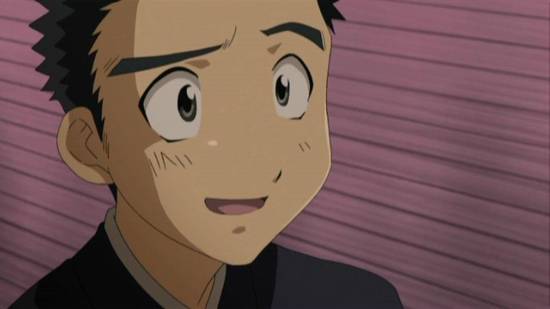
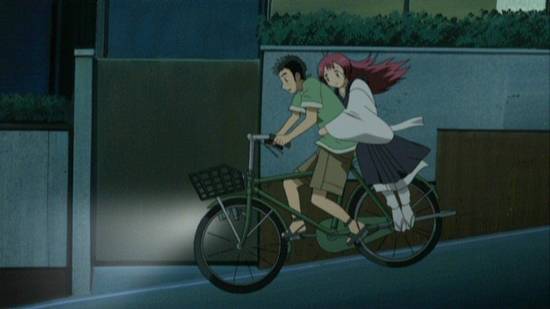
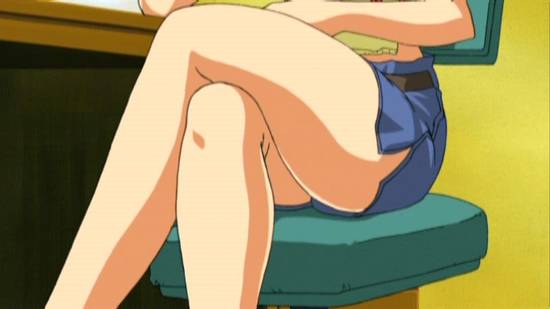
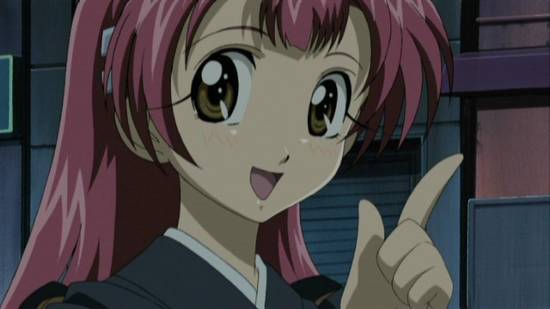
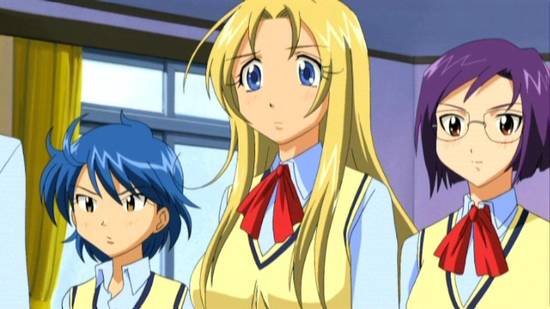
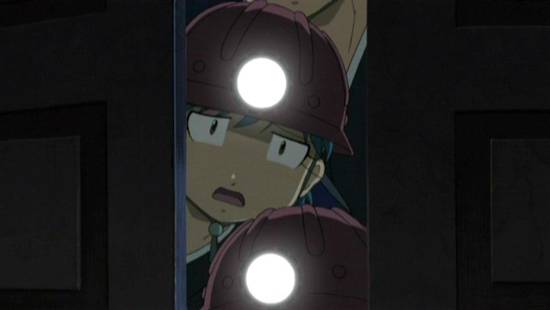
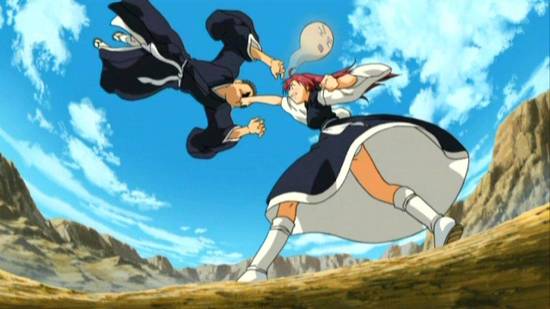
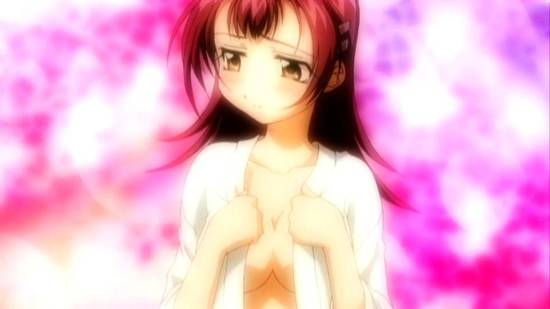
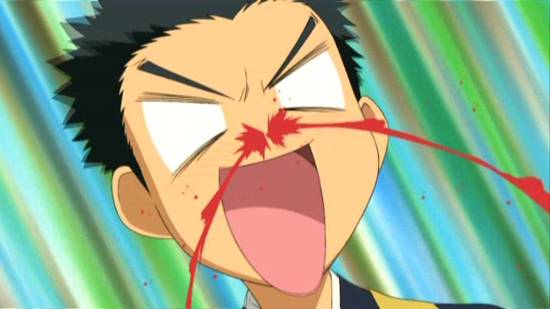
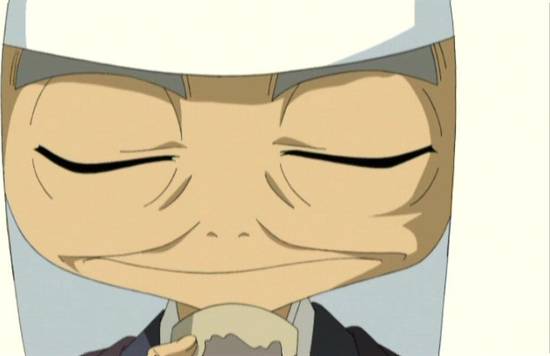
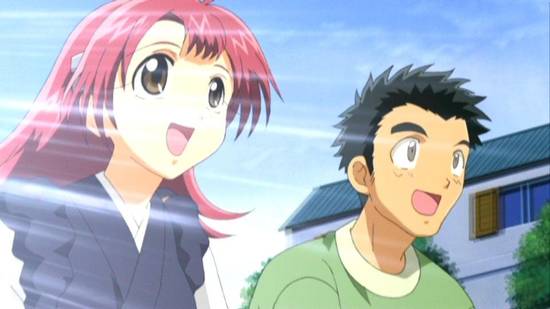
Your Opinions and Comments
Be the first to post a comment!